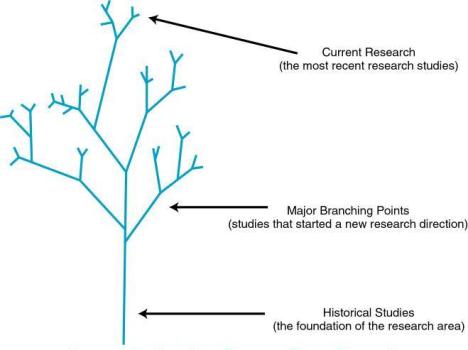
Psy 231 Stats/Methods I
Chapter 2 Outline
Research
Ideas
I.
Sources of Research Ideas
A. Personal Interests/Curiosities
Observe
the world with curiosity & apply the knowledge of your discipline
B. Practical Problems or Questions
What
issues/problems arise at home, work, school?
C. Unsystematic (Casual) Observation
Observation
of everyday behavior (humans, animals)
D. Network with Experts
Bounce new ideas off of your professor
Attend Conventions
Local
& aimed at undergrads:
Red River Psychology Conference (Rotates among the tri-colleges. Hosted by MSUM this spring (4/19/12 & 4/20/12)
Regional:
Midwestern
Psychological Association
Western
Psychological Association
Southwestern
Psychological Association
Rocky
Mountain
Psychological Association
Eastern
Psychological
Association
National:
American
Psychological Association
Association for
Psychological Science
Specialized Conferences
Association for Research in Vision
Society for Research in Child Development
Society for the Psychological Study of Social Issues
E. Systematic Observation
Systematically
observe behavior under naturally occurring conditions
E.g.,
Published research reports, theories, your own previous or ongoing research
F. Search the Literature
II. Developing Good
Research Questions
A. Ask Answerable Questions
Translate
ideas into a set of testable
predictions
B. Ask the Right Question
Your
question must be addressable with scientific methods
Your
question must be addressable with empirical observations
C. Ask Important Questions
Expense
& time involved in doing the research must be justified
Your
questions should help clarify theoretical or empirical issues or address
important practical issues
III.
Finding & Using Background Literature
A. The Growth/Development of Research

B. Primary vs. Secondary Sources
Primary
source—first-hand report
Secondary
source—second-hand report
C. Types of Sources
Abstracts
(e.g., Psychological
Abstracts)
Social
Science Citation Index
Books/book
chapters
Computer literature searches (e.g., electronic databases such as PsycINFO)
D. Using PsycINFO
PsycINFO link on the library page (Click on 1st drop-down list and select PsycINFO through CSA)
Indexes
the academic, research, & practice literature in psychology from over 45
countries in more than 30 languages
Covers 1967-present & is updated monthly
Searchable
by author and keyword combination
E. Literature reviews
Some
journals just produce summary reviews of topics
(e.g. Psychological Bulletin, Psychology
Review, Annual Review of Psychology )
IV.
Reading a Research Article Critically
A. Can the results be replicated and generalized to other situations?
B. How sound are the methods?
C. Does the author have a good reputation as a scientist?
D. Learn the language
used by scientists in that particular area
E. Possess a healthy dose of skepticism